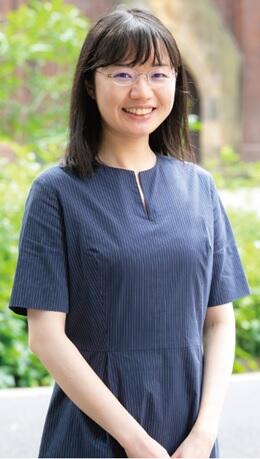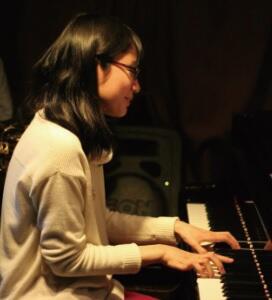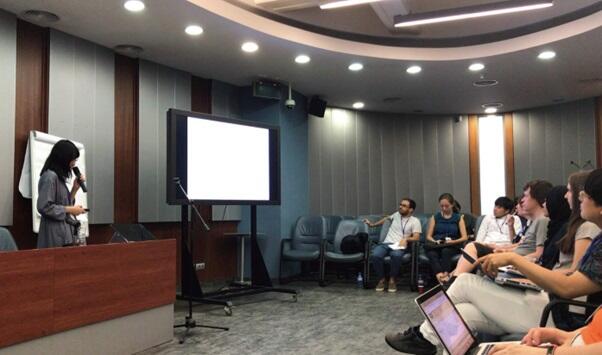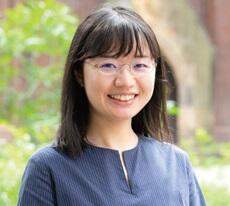
Associate Professor, the Graduate School of Information Science and Technology, Department of Computer Science, the University of Tokyo
Q1. What motivated you to become a researcher?
A1. Facing challenges in patent literature search technology
My research field is natural language processing. I first encountered it after entering the workforce. I majored in applied chemistry at university and graduate school, but I was interested in the IT field as well. That led me to work as an engineer in the private sector after graduating. My job was developing patent search systems. The turning point was when a system user pointed out, "The current system is ineffective for searching patent documents with quantitative expressions."
Patent documents often contain quantitative expressions, like "10 grams of reagent". But we didn't have adequate technology at that time to search for documents containing such numerical values. Upon further investigation, I learned that this is an unsolved problem in the field of natural language processing, and it can't be solved by simple pattern matching. So, I felt the need for fundamental research and wanted to solve the problem myself.
I was in my third year at the company at that time, and as I had always longed to become a researcher, I decided, "Now is the time to do so," and therefore, I joined a doctoral program. I was nervous about changing my field of expertise in my late 20s, but I now feel it was the right choice.

Q2. What is the research topic that you are currently working on?
A2. Formal descriptions of the meaning of logical words
Currently, natural language processing is dominated by large-scale language models. These models learn the meaning of words statistically, from vast amounts of data. However, there are still challenges in accurately capturing expressions that play grammatical roles, for example, quantitative expressions, negation expressions, and expressions of time. So, I'm working on research that draws on the approach of "formal semantics." This means formally analyzing the meaning of words based on concepts used in logic. The aim is to robustly handle the meanings of logical expressions like "and" and "all." This is done using logical symbols.
By combining the formal and statistical approaches, we can capture the meaning of words with greater precision. We can accurately determine similarities and logical relationships between sentences. My PRESTO research applies this technique to imaging. I worked on developing a system that can correctly recognize the number of objects in an image. It can recognize their relative positions, and logical relationships such as "second from the right." I believe that the meaning of an image and the meaning of a text can be expressed in logical expressions. The relationship between the two can be shown in the form of a mathematical proof. This will provide grounds for decision-making by AI.
In the future, I aim to develop a reasoning system that can present convincing evidence to people in an easy-to-understand manner, making AI trustworthy. I feel that ensuring safe, unbiased AI output is like creating trusting relationships between human beings. In the future, it would be interesting if AI could be something like another member of the family.

Q3. What advice would you give to aspiring researchers?
A3. Keep challenging yourself.
When I was a student, I wasn't clear about what I liked or what I wanted to do. When you're in such situation, I think you should just work hard to tackle what's in front of you. In the process, you'll discover what you like and what you're suited for. The important thing is to stay willing to try different things. You'll never know what's right for you until you try it.
In my case, although I changed my field of specialization from applied chemistry to informatics, my experience in chemistry hasn't gone waste. It may seem like I took a roundabout route. But my experience of studying different fields allows me to approach my current research from perspectives beyond the boundaries of existing frameworks.
I hope that upcoming researchers will find their own unique path while broadening their own interests. Gaining new knowledge and discovering issues that no one else was aware of will help you grow and enrich your life.
(Article: Kayo Murakami)

Profile
Hitomi Yanaka
Associate Professor, the Graduate School of Information Science and Technology, Department of Computer Science, the University of Tokyo
Born in Tokyo, Japan She graduated in 2018 from the Department of Systems Innovation, the Graduate School of Engineering at the University of Tokyo with a Ph.D. in Engineering. Yanaka worked as a Postdoctoral Researcher at the Center for Advanced Intelligence Project, RIKEN. She has been in her current position since 2023.
PRESTO Research Fellow since 2021.




